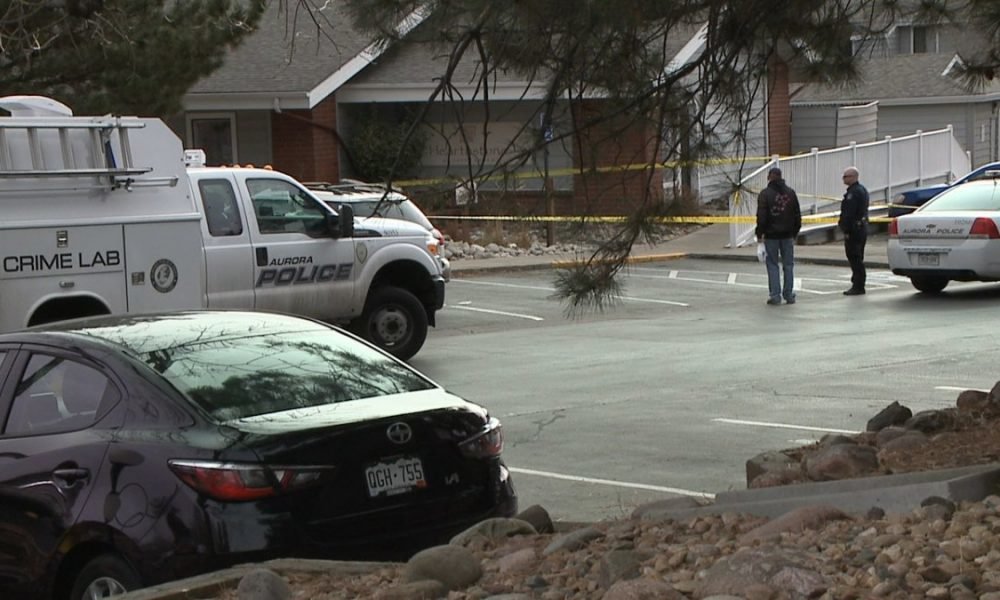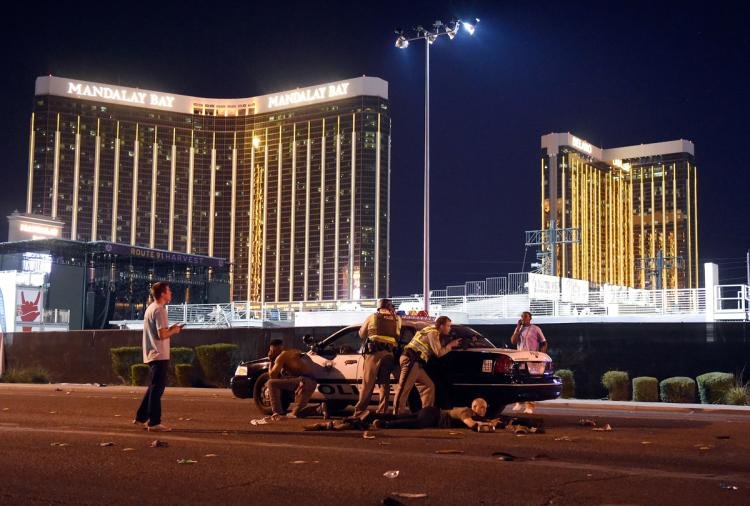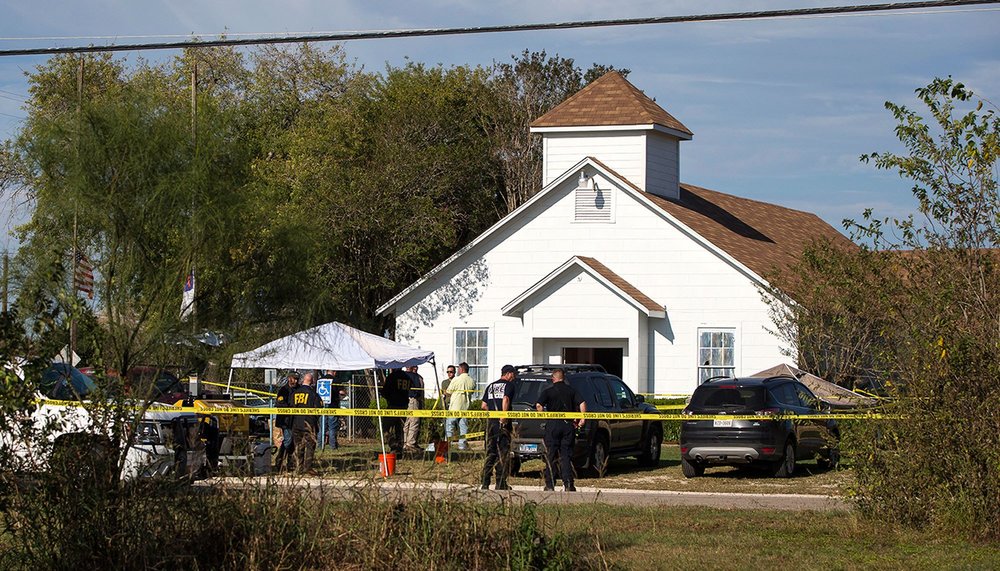
Is Gun Violence Really A Product Of Mental Health Problem?

Mental Health problem is one of the fatal diseases people face all around the world. And yet, it’s also one of the most underrated topics to discuss simply because a lot of people don’t believe in it. Whenever we hear about a person being depressed, anxious, or suffering from a stress traumatic disorder, we also see them brushed off as “attention-seekers” or persons needy of love and the center of attention. We take their struggles for granted until such time they take their own lives and we start turning our attention back to them.
Mental Health is such a struggle in our modern-day world and we can find these patients drowning into the deepest pits of abyss because they couldn’t overcome the struggles and nightmares. It’s awful enough to hear those people we know (even celebrities) committing suicides in order to escape their battles but we feel sad so much more if they inflict violence not only on themselves but other people as well. Does this violence really reflect as a product of a mental health problem? Let us dig deeper into this topic to know how our physique can affect the decisions and actions we make.
The World Claims that all gun violence and terror attacks are a product of a mentally ill person.

Mass Shooting in Mandalay Bay
From the deadly mass shooting in Mandalay Bay to the barbaric truck attack in New York City and just last week, it was ended with the brutal shooting in a Texan Church, the United States, and President Trump, all blame it on a suspect who’s ”mentally sick to the highest level”.
“We have a lot of mental health problems in our country, as do other countries, but this isn’t a guns situation,” Trump said during a joint news conference Monday in Tokyo.
“This is a mental health problem at the highest level,” he said. “It’s a very, very sad event.”
He also claimed that these people are pure evil with heartless soul to be able to commit such barbaric acts. To most of us, it can be easier to put the blame on mental health and make it our scapegoats to accept the tragedy that comes to us. After all, a person is no longer redeemable when he or she has lost their sanity, right? But is it really? Let’s ask what the mental health professionals and researchers have to say about that.
Gun Violence and Mass Shooting Acts Are Much More Complicated than Having a Mental Health Problem
Based on the results of various epidemiological studies conducted by different mental health researchers all over the world for the past two decades, the vast majority of their patients diagnosed with a serious mental illness like schizophrenia, bipolar disorder, and depression were less likely to be violent than anyone else.
Studies also show that patients with mental illness are 10 times more likely to become a victim of a violent crime than becoming the perpetrator. According to Statistics, only about 3% to 5% of violent acts were accredited to a patient with a mental illness according to the US Department of Health and Human Service.
But those statistics have “almost nothing to do with mass casualty shootings,” said Jeffrey Swanson, a professor of psychiatry and behavioral sciences at Duke University who specialized in gun violence and mental illness.
How can Mental Health and Gun Violence Be Intertwine? And How Can We Stop the Violence?
Swanson told CNN that there might be an overlap or intersection between edges between two concepts. Oftentimes, the bridge between their gaps is an external factor like drug or alcohol addiction. Otherwise, a person who is depressed will most likely have suicidal tendencies than violence. But if a mentally ill person has access to illegal stuff like drugs and paired with easy access to gun ownership, then a patient will more likely to have violent tendencies.

Texas Shooting on Sunday Morning Mass
“If we back up and think about firearm-related injuries and mortality as a public health problem, it turns out there is a mental health-related story, and it’s suicide,” he said. “If we had better mental health care and could get people better access and break down barriers to care, then yes, we might reduce gun violence by a lot but it would be from reducing suicides.
“Reducing the incidence of gun violence will require interventions through multiple systems, including legal, public health, public safety, community, and health. Increasing the availability of data and funding will help inform and evaluate policies designed to reduce gun violence.”
More in Mind & Mental
-
`
Signs of Emotional Connection in Relationships
Building a strong connection with someone isn’t just about being in sync or sharing hobbies—it’s about that deeper bond, where you...
December 4, 2023 -
`
Hollywood’s Shortest Marriages: Britney Spears, Carmen Electra & More!
In the glitzy world of Hollywood, where fairy tales often unfold on the silver screen, there exists a flip side—a realm...
December 3, 2023 -
`
The Surprising Benefits of Unplugging
In today’s hyper-connected world, where we are constantly bombarded with notifications, messages, and the allure of social media, disconnecting may seem...
November 26, 2023 -
`
How “Looking Your Best” Improves Our Wellbeing
Most of us have had moments standing in front of our closet, deciding on an outfit for the day. And we...
November 15, 2023 -
`
Therapy? Medication? What Are the Treatments for PTSD
Post-Traumatic Stress Disorder (PTSD) is a common after-effect of traumatic events. It can be a debilitating condition, but the good news...
November 7, 2023 -
`
Meet the Woman Who ALMOST Married Barack Obama
Barack Obama’s life has been a captivating narrative, often told and retold, with each revelation adding layers of intrigue to his...
November 5, 2023 -
`
The Rise of Caviar Bumps, Thanks to Gen Z
In an intriguing twist of culinary culture, millennials and Gen Zers are drawn to an unusual indulgence – fish eggs, or...
October 28, 2023 -
`
Everything You Need to Know About Acid Reflux, Heartburn and GERD
Ever had that burning-in-the-chest sensation after a meal? Or perhaps you have lain awake at night with an odd sour taste...
October 17, 2023 -
`
Best AI Apps for Mental Health
Mental health has long been a topic of discussion and concern. With technological advancements, AI (Artificial Intelligence) has emerged as a...
October 10, 2023















You must be logged in to post a comment Login